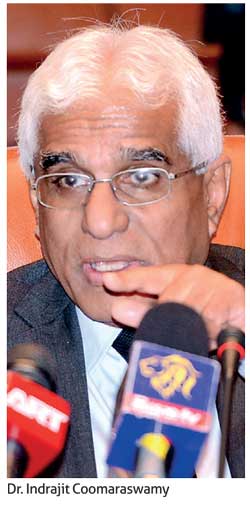08 Aug 2017 - {{hitsCtrl.values.hits}}
By Chandeepa Wettasinghe
The employees in Sri Lankan firms may start to demand higher wages, after observing the higher price levels of goods and services stemming from weather-related supply-side disruptions, the Central Bank cautioned.

A limited portion of Sri Lanka’s labour force has negotiated salary contracts, since a large section of the economy is in the informal sector, with labour drawing a wage. Major firms too tend to pay some of their staff in wages since such payments are harder to track to be liable for taxation or pension contributions.
Central Bank Governor Dr. Indrajit Coomaraswamy last week said if the price levels in the island, including those of food, transport and energy go up significantly, the employees will start demanding more wages.
“If headline inflation goes up because of major supply disruptions and if it goes up significantly, then you have to be careful about the secondary effects that can come from that because it can lead to wage pressure, even though it’s not a demand-side effect, it can eventually lead to demand-side ramifications in terms of wages, etc. and in terms of expectations,” he said.
Central Banks across the world usually do not tighten the monetary policy in response to weather-related disruptions, since such effects are usually impermanent. However, weather-related supply-side disruptions have been the norm and not the exception in Sri Lanka over the past 12 months. A low inflation base in 2015 due to populist policies, coupled with natural disasters, saw price levels in the island increasing from moderate to high levels over the 14 months to June 2017.
Flooding in highly industrialized areas in May 2016 saw inflation flair up for about three months, before moderating, until earlier this year, when a persistent drought in major agricultural areas, coupled with flooding to some other areas saw national price levels increase rapidly. The government had to relax regulations governing imports of certain agricultural products in order to meet the local demand and import more fossil fuels to operate thermal power plants under emergency, since the reservoirs that feed the hydropower plants have been at low levels for months. The rupee has depreciated by about 2.5 percent compared to the US dollar so far this year, also adding up to higher price levels from imports. Dr. Coomaraswamy said that if the prices increase significantly, the policy rates might have to be increased. “We may need to consider increasing rates to anchor expectations,” he said. However, he said that he is expecting the inflation to moderate by the end of this year.
10 Jan 2025 16 minute ago
10 Jan 2025 1 hours ago
10 Jan 2025 2 hours ago
10 Jan 2025 2 hours ago
10 Jan 2025 2 hours ago